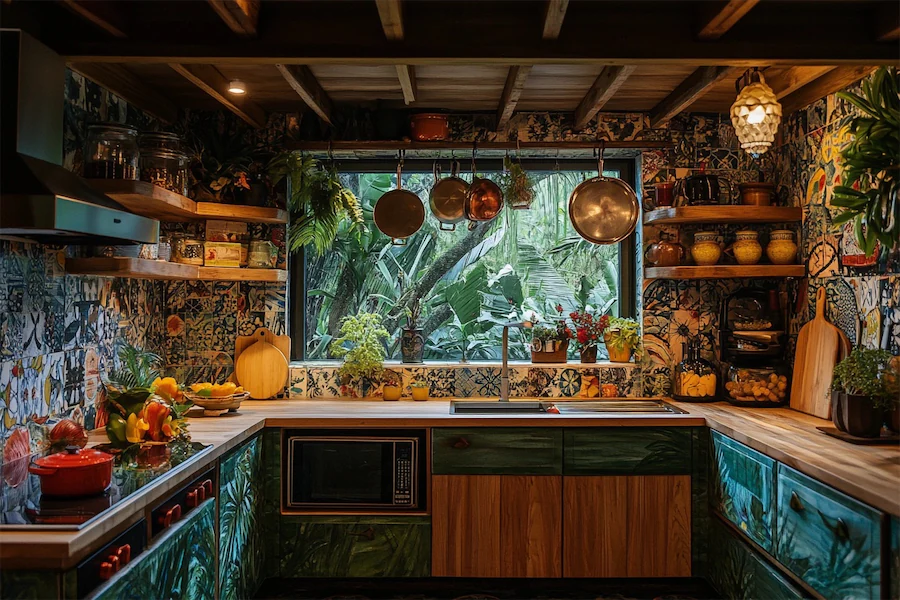A tropical kitchen design brings the vibrant and refreshing ambiance of the tropics into your home, characterized by natural materials, lush greenery, and a bright color palette. This article explores the key features, applications, and considerations for creating a tropical-inspired kitchen.
Key Features of Tropical Kitchens
- Natural Materials: Incorporate materials such as bamboo, rattan, and teak wood for cabinetry and furniture to evoke a tropical feel. These materials are not only durable but also add warmth and texture to the space.
- Lush Greenery: Introducing indoor plants, such as palm leaves or ferns, can enhance the tropical atmosphere. Consider placing potted plants on countertops or hanging planters near windows to bring in natural elements.
- Vibrant Color Palette: Utilize bright and bold colors like turquoise, coral, and sunny yellows, either through wall paint, backsplash tiles, or decorative accessories, to reflect the lively hues of tropical environments.
- Open and Airy Layout: Design the kitchen with an open floor plan to allow for ample natural light and ventilation, creating a breezy and inviting space reminiscent of tropical locales.
- Decorative Elements: Incorporate tropical motifs such as leaf patterns, exotic fruits, or marine life in textiles, wallpapers, or artwork to enhance the thematic decor.
Applications of Tropical Kitchens
- Residential Homes: Homeowners can transform their kitchens into tropical retreats by integrating these design elements, providing a refreshing and lively cooking environment.
- Vacation Properties: Tropical kitchen designs are ideal for beach houses or vacation rentals, offering guests an immersive and thematic experience.
- Themed Restaurants: Establishments serving tropical or island cuisine can enhance the dining experience by featuring a tropical kitchen design that complements the menu.
Considerations When Designing a Tropical Kitchen
- Climate Suitability: Ensure that the materials chosen can withstand the local climate, especially in humid or coastal areas where certain woods may require special treatments.
- Maintenance: Be prepared for the upkeep of natural materials and indoor plants to maintain the aesthetic appeal and longevity of the design.
- Cultural Sensitivity: Incorporate authentic elements thoughtfully to respect and honor the cultures that inspire tropical designs.
Conclusion
A tropical kitchen design infuses your home with the vibrant and relaxing vibes of the tropics, creating a space that is both functional and aesthetically pleasing. By incorporating natural materials, lush greenery, and a vibrant color palette, you can transform your kitchen into a tropical oasis.
